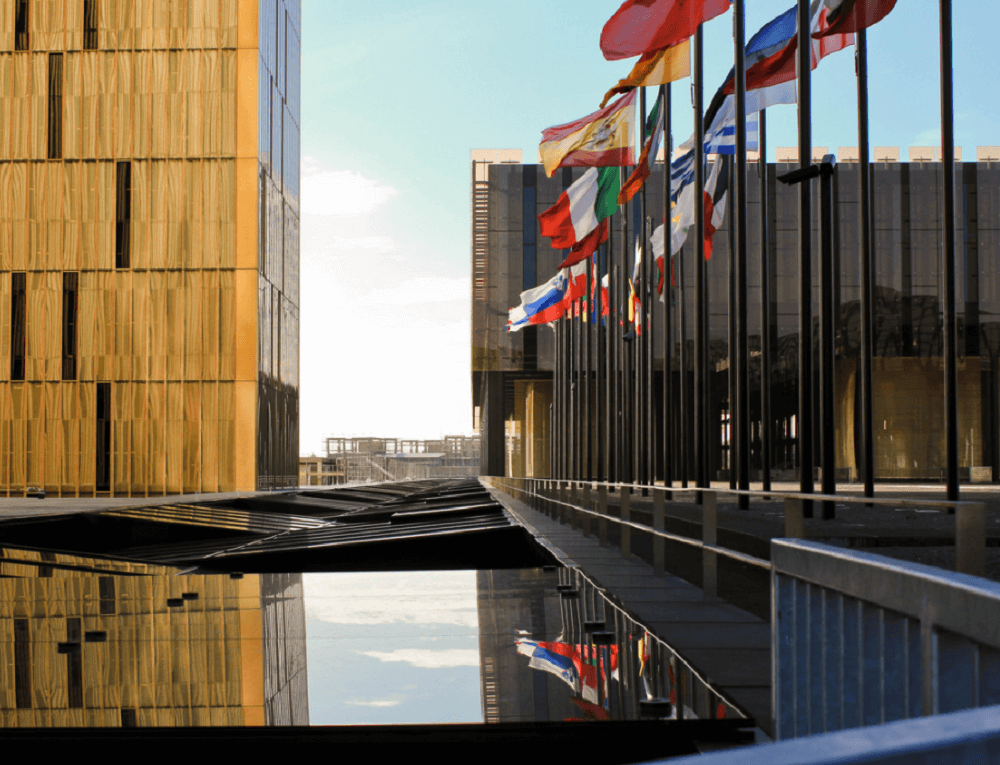The dispute about the “right to oblivion”: whether to consider the work of search engines as journalism?
For several months, the High Court of London dealt with the case of the “ right to oblivion ”, adopted in 2014. Two businessmen who had problems with the law in the past demanded that Google remove information that has been outdated for several decades from search results. Last week, the court satisfied the requirements, but only one of the entrepreneurs.
Learn more about the situation and why Google brought the case to court, we will tell below.

/ photo Katarina Dzurekova CC
')
The right to oblivion was taken by the European Court in 2014. It obliges Google to remove from search results information about European citizens upon their request, if it is “false, inaccurate or irrelevant”. In the same ruling, the court provided Google with its own ability to decide what could be “removed” and what was of interest to the public.
From 2014 to 2017, Google processed about 2.5 million requests to remove information from search results. Eight percent of them concerned information related to criminal activity. Each request was considered individually, as people often used the system for mercenary purposes.
Once, a user accused of fraud, asked to remove from the issue of 300 articles related to his criminal record. He submitted documents confirming his innocence by the court, and the corresponding references were removed from the extradition. However, later it turned out that the documents were fake. Google links returned.
Hearings on the case of two businessmen [in the media do not disclose their names and designate them as NT1 and NT2] have already been going on for several months, wanting to remove information about their past from the Google search results. Cases are dealt with in the High Court of London (High Court of Justice).
Businessmen were convicted in the 90s for committing white-collar crimes . They claim that they have served their sentences, and therefore they have the right to be forgotten.
The representative of NT1 businessman, Hugh Tomlinson (Hugh Tomlinson), said in court that the availability of information about past crimes in search results "upset" the plaintiff and brought him "moral suffering". He noted that many people make mistakes in their youth and constantly reminding them of other people has a negative effect on public relations.
Google does not agree with such statements. A company spokesman, Antony White, during a hearing in one of the cases, said that the right to oblivion does not allow rewriting history. He noted that the nature of the crimes in the case in question concerns professional activity, and not private life. The history of offenses to this day is of interest to potential clients and partners of a businessman, given that he continues to work in the same field.
A Google representative noted that the plaintiff had created an image of a respected businessman through a series of publications on social networks, and if we realize his right to be forgotten, the false picture will only be strengthened.
The company also states that their decision [not to delete information about plaintiffs] is subject to the journalism amendment set forth in the Data Protection Act, which allows the use of personal data for journalistic purposes.
According to Google, the broad definition of journalism includes the work of a search engine. Representatives of the IT giant, according to the documents submitted to the court, stated: "The process of displaying search results exists in order to provide users with access to the content of various publications and media, including information, opinions and ideas."

/ photo by Paul Hudson CC
Information Commissioner Elizabeth Denham has criticized the position of an IT corporation. In her opinion, journalism involves the process of editing by a person - the machine algorithms of Google services do not fall into this category. She noted that if the court takes the side of the IT giant, the company will get more opportunities to control the content.
Denam shares the position and the reporter of the Register Gareth Corfild (Gateth Corfield), covering the events from the courtroom. “Google has put a lot of effort into convincing everyone that they don’t edit the results of the issue, but now they say they are engaged in journalism,” Corfild says.
However, not everyone criticizes Google. Paul Chadwick (Paul Chadwick), editor of The Guardian, believes that the “right to oblivion” itself requires revision, since it has quite a few “holes” that are misleading. Therefore, in his opinion, legislators should focus not on regulating the limits of a person’s control over information about him online, but on designating the boundaries and spheres of application of such laws.
The court delivered its decision in both cases last week, but these are two different decisions. Regarding NT2, Judge Mark Warby (Mark Warby) ordered Google to remove information from the issue, as it is not related to the plaintiff’s current business activities. Plus, Warby took into account the remorse of NT2.
However, in the case of NT1, the solution was exactly the opposite. The judge noted that NT1 continued to mislead the court during the consideration of the case and did not show any remorse for the crime committed by it. Moreover, since the plaintiff continued to work in the same field, information about his past is important for those who will cooperate with him in the future.
As representatives of the Open Rights Group, dealing with the observance of human rights and freedoms in the digital world, said, such a decision creates a precedent that will have far-reaching consequences. In the future, the court will have to weigh and assess the impact that the deleted information has on the public. But what this will lead to is unclear.
Google has noted that they will respect the court ruling and will comply with the order.
PS Posts on the topic from the First Corporate IaaS Blog:
Learn more about the situation and why Google brought the case to court, we will tell below.

/ photo Katarina Dzurekova CC
')
On the right to oblivion
The right to oblivion was taken by the European Court in 2014. It obliges Google to remove from search results information about European citizens upon their request, if it is “false, inaccurate or irrelevant”. In the same ruling, the court provided Google with its own ability to decide what could be “removed” and what was of interest to the public.
From 2014 to 2017, Google processed about 2.5 million requests to remove information from search results. Eight percent of them concerned information related to criminal activity. Each request was considered individually, as people often used the system for mercenary purposes.
Once, a user accused of fraud, asked to remove from the issue of 300 articles related to his criminal record. He submitted documents confirming his innocence by the court, and the corresponding references were removed from the extradition. However, later it turned out that the documents were fake. Google links returned.
The case of two businessmen
Hearings on the case of two businessmen [in the media do not disclose their names and designate them as NT1 and NT2] have already been going on for several months, wanting to remove information about their past from the Google search results. Cases are dealt with in the High Court of London (High Court of Justice).
Businessmen were convicted in the 90s for committing white-collar crimes . They claim that they have served their sentences, and therefore they have the right to be forgotten.
The representative of NT1 businessman, Hugh Tomlinson (Hugh Tomlinson), said in court that the availability of information about past crimes in search results "upset" the plaintiff and brought him "moral suffering". He noted that many people make mistakes in their youth and constantly reminding them of other people has a negative effect on public relations.
Google does not agree with such statements. A company spokesman, Antony White, during a hearing in one of the cases, said that the right to oblivion does not allow rewriting history. He noted that the nature of the crimes in the case in question concerns professional activity, and not private life. The history of offenses to this day is of interest to potential clients and partners of a businessman, given that he continues to work in the same field.
A Google representative noted that the plaintiff had created an image of a respected businessman through a series of publications on social networks, and if we realize his right to be forgotten, the false picture will only be strengthened.
How Google explains its position
The company also states that their decision [not to delete information about plaintiffs] is subject to the journalism amendment set forth in the Data Protection Act, which allows the use of personal data for journalistic purposes.
According to Google, the broad definition of journalism includes the work of a search engine. Representatives of the IT giant, according to the documents submitted to the court, stated: "The process of displaying search results exists in order to provide users with access to the content of various publications and media, including information, opinions and ideas."

/ photo by Paul Hudson CC
What does the community think?
Information Commissioner Elizabeth Denham has criticized the position of an IT corporation. In her opinion, journalism involves the process of editing by a person - the machine algorithms of Google services do not fall into this category. She noted that if the court takes the side of the IT giant, the company will get more opportunities to control the content.
Denam shares the position and the reporter of the Register Gareth Corfild (Gateth Corfield), covering the events from the courtroom. “Google has put a lot of effort into convincing everyone that they don’t edit the results of the issue, but now they say they are engaged in journalism,” Corfild says.
However, not everyone criticizes Google. Paul Chadwick (Paul Chadwick), editor of The Guardian, believes that the “right to oblivion” itself requires revision, since it has quite a few “holes” that are misleading. Therefore, in his opinion, legislators should focus not on regulating the limits of a person’s control over information about him online, but on designating the boundaries and spheres of application of such laws.
The court's decision
The court delivered its decision in both cases last week, but these are two different decisions. Regarding NT2, Judge Mark Warby (Mark Warby) ordered Google to remove information from the issue, as it is not related to the plaintiff’s current business activities. Plus, Warby took into account the remorse of NT2.
However, in the case of NT1, the solution was exactly the opposite. The judge noted that NT1 continued to mislead the court during the consideration of the case and did not show any remorse for the crime committed by it. Moreover, since the plaintiff continued to work in the same field, information about his past is important for those who will cooperate with him in the future.
As representatives of the Open Rights Group, dealing with the observance of human rights and freedoms in the digital world, said, such a decision creates a precedent that will have far-reaching consequences. In the future, the court will have to weigh and assess the impact that the deleted information has on the public. But what this will lead to is unclear.
Google has noted that they will respect the court ruling and will comply with the order.
PS Posts on the topic from the First Corporate IaaS Blog:
Source: https://habr.com/ru/post/353610/
All Articles